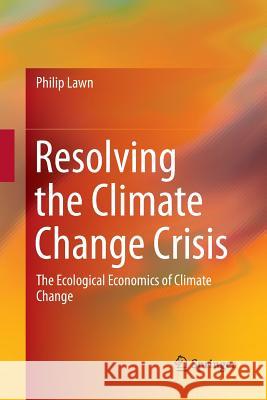Resolving the Climate Change Crisis: The Ecological Economics of Climate Change » książka
topmenu
Resolving the Climate Change Crisis: The Ecological Economics of Climate Change
ISBN-13: 9789402413632 / Angielski / Miękka / 2018 / 628 str.
Kategorie:
Kategorie BISAC:
Wydawca:
Springer
Język:
Angielski
ISBN-13:
9789402413632
Rok wydania:
2018
Wydanie:
Softcover Repri
Ilość stron:
628
Waga:
0.90 kg
Wymiary:
23.39 x 15.6 x 3.35
Oprawa:
Miękka
Wolumenów:
01
Dodatkowe informacje:
Wydanie ilustrowane











